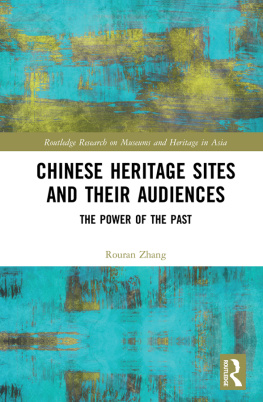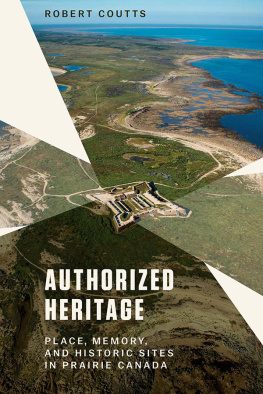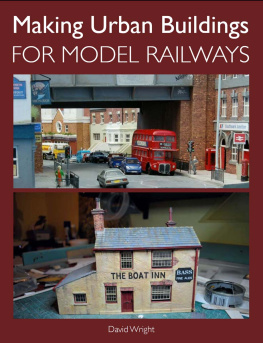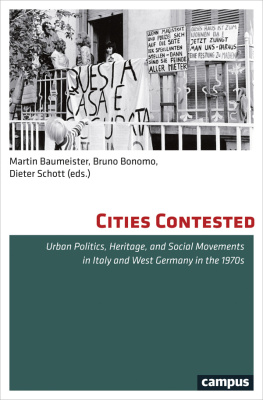
Securing Urban Heritage
Securing Urban Heritage considers the impact of securitization on access to urban heritage sites. Demonstrating that symbolic spaces such as these have increasingly become the location of choice for the practice and performance of contemporary politics in the last decade, the book shows how this has led to the securitization of urban public space. Highlighting specific changes that have been made, such as the installation of closed-circuit television or the limitation of access to certain streets, plazas, and buildings, the book analyses the impact of different approaches to securitization.
Claiming that access to heritage sites is a precursor to an informed and thorough understanding of heritage, the editors and contributors to this volume argue that new forms of securing urban heritage, including community involvement and digitalization, offer possibilities for the protection and use of urban heritage. Looking more closely at the versatile relationship between access and securitization in this context, the book provides a theoretical framework for the relationship between urban heritage and securitization. Comparing case studies from cities in Angola, Bulgaria, Eritrea, France, Germany, Hungary, Italy, Japan, Latvia, Mexico, Norway, Russia, Suriname, Sweden, Turkey, UK, and the US, the book reveals some of the key mechanisms that are used to regulate access to heritage sites around the world.
Providing much-needed insight into the diverse challenges of securitization for access and urban heritage, Securing Urban Heritage should be essential reading for academics, students, and practitioners from the fields of heritage and urban studies, architecture, art history, conservation, urban planning, and urban geography.
Heike Oevermann is a postdoctoral researcher and lecturer in interdisciplinary urban and heritage studies at the Georg Simmel Center for Metropolitan Studies, Humboldt Universitt zu Berlin in Germany.
Eszter Gantner is a postdoctoral researcher with a focus on urban history and heritage studies at the Herder Institute for Historical Research on East Central Europe in Marburg, Germany.
Routledge Studies in Heritage
Marie Antoinette at Petit Trianon
Heritage Interpretation and Visitor Perceptions
Denise Major-Barron
Heritage after Conflict
Northern Ireland
Edited by Elizabeth Crooke and Tom Maguire
Historicizing Heritage and Emotions
The Affective Histories of Blood, Stone and Land
Edited by Alicia Marchant
Underwater Cultural Heritage
Ethical Concepts and Practical Challenges
Elena Perez-Alvaro
Cultural Heritage, Ageing, Disability and Identity
Practice, and the Development of Inclusive Capital
Simon Hayhoe
Securing Urban Heritage
Agents, Access, and Securitization
Heike Oevermann & Eszter Gantner
Visitor Encounters with the Great Barrier Reef
Aesthetics, Heritage, and the Senses
Celmara Pocock
www.routledge.com/Routledge-Studies-in-Heritage/book-series/RSIHER
Securing Urban Heritage
Agents, Access, and Securitization
Edited by Heike Oevermann and Eszter Gantner
First published 2020
by Routledge
2 Park Square, Milton Park, Abingdon, Oxon OX14 4RN
and by Routledge
52 Vanderbilt Avenue, New York, NY 10017
Routledge is an imprint of the Taylor & Francis Group, an informa business
2020 selection and editorial matter, Heike Oevermann and Eszter Gantner; individual chapters, the contributors
The right of Heike Oevermann and Eszter Gantner to be identified as the authors of the editorial material, and of the authors for their individual chapters, has been asserted in accordance with sections 77 and 78 of the Copyright, Designs and Patents Act 1988.
All rights reserved. No part of this book may be reprinted or reproduced or utilised in any form or by any electronic, mechanical, or other means, now known or hereafter invented, including photocopying and recording, or in any information storage or retrieval system, without permission in writing from the publishers.
Trademark notice: Product or corporate names may be trademarks or registered trademarks, and are used only for identification and explanation without intent to infringe.
British Library Cataloguing-in-Publication Data
A catalogue record for this book is available from the British Library
Library of Congress Cataloging-in-Publication Data
A catalog record has been requested for this book
ISBN: 978-0-367-14843-0 (hbk)
ISBN: 978-0-429-05355-9 (ebk)
Typeset in Sabon
by Newgen Publishing UK
Contents
Eszter Gantner and Heike Oevermann
Christophe Foultier
Katarzyna Puzon
Olimpia Niglio
Dennis Rodwell
Piotr Kuroczyski
Torben Kiepke and Hans-Rudolf Meier
Anna Storm, Fredrik Krohn Andersson, and Egl Rindzeviite
Juli Szkely
Ayse N. Erek and Eszter Gantner
Ricardo Duarte Bajaa
Nadine Siegert
Heike Oevermann and Eszter Gantner
Ricardo Duarte Bajaa earned his PhD in social anthropology at the Ibero-American University, Mexico City, and holds an MSc in bioethics from Universidad el Bosque, Bogot, Colombia. He specializes in communication and education at Universidad Central (Bogot) and physical education at Universidad Pedaggica Nacional de Colombia (Bogot). He has participated in studies related to socio-cultural processes within groups of soccer fans, female prisoners, and neighbourhood communities.
Ayse N. Erek, PhD, is an associate professor at the Faculty of Art and Design, Kadir Has University, Istanbul, Turkey, where she serves as director of the Design Research Graduate Program, focusing on methods and formats of transdisciplinary research on issues concerning theories and practices of contemporary art and design.
Christophe Foultier, PhD, is a postdoctoral fellow at Linkping University, Sweden. He holds a masters degree in urban planning and a PhD in international migration and ethnicity. His doctoral thesis, Regimes of Hospitality: Urban Citizenship between Participation and SecuritizationThe Case of the Multiethnic French Banlieue, analyses how urban strategies generate intersecting processes of participation and security.
Eszter Gantner is a postdoctoral researcher with a focus on urban history and heritage studies at the Herder Institute for Historical Research on East Central Europe in Marburg, Germany.
Torben Kiepke, PhD, studied architecture and conservation of monuments/preservation in Berlin and Venice. From 2005 to 2012 he taught in the Department of Preservation and Architectural Design at the Technical University of Dresden. In 2013, he concluded his dissertation on the architectural redesign of facades in Berlin during the 1920s. From 2013 to 2018 he was a lecturer and researcher at the Bauhaus-Universitt Weimar, where he was involved in the project Which MonumentsWhich Modernism? that compared methods of selecting and listing late-modern architecture in Europe. Since 2018 he has worked as an architect and researcher for the German Archaeological Institute.








